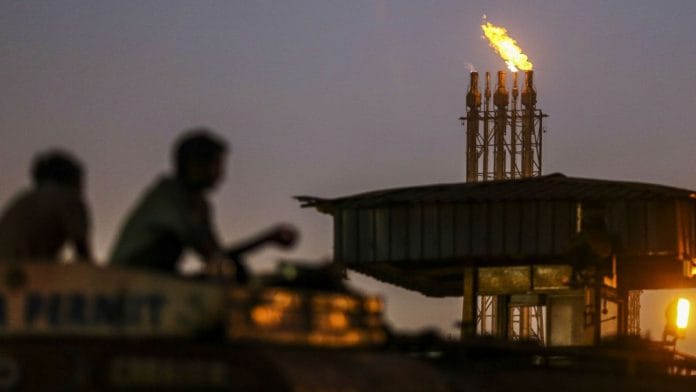New Delhi: India has once again urged OPEC and its allies to revive halted oil production as the world’s third-biggest consumer expressed “deep concern” over spiraling energy prices.
“High crude prices are adding significant inflationary pressure on India,” Oil Minister Dharmendra Pradhan told OPEC’s top official during a video-conference on Thursday, according to a statement on Twitter. He called for “affordable” supplies, with prices in a “reasonable band,” and repeated a request for OPEC+ to boost production.
International oil prices have soared to a two-year high above $75 a barrel as demand bounces back from the pandemic slump. Still, Saudi Arabia has signaled that the producer group will only cautiously restore shuttered output when it meets next week because the market remains fragile.
For India, the current pressures are particularly acute. As the local currency has depreciated steadily against the U.S. dollar in recent years, the cost of oil is fast approaching 5,550 rupees per barrel — just 10% less than during the market frenzy of 2007-08. Gasoline prices hit a record last month in Mumbai, the country’s financial capital, though much of the surge has resulted from tax hikes.
It’s not the first time this year that India has voiced concern over OPEC’s output policy. OPEC+ continues to keep vast amounts of crude output off-line after slashing production when the pandemic battered demand a year ago.
In January, there was a visible rift when Pradhan told OPEC Secretary-General Mohammad Barkindo at a public conference that the group’s policy was “creating confusion for the consuming countries.”
Tensions also flared between the country and OPEC leader Saudi Arabia in March when the kingdom spurned its pleas to open the taps, and instead told New Delhi to use fuel it had snapped up cheaply during last year’s crash. India responded by accelerating plans to seek alternative energy sources.
How far the Organization of Petroleum Exporting Countries and its partners will go in heeding consumers’ needs at their meeting on July 1 remains unclear.
Saudi Arabia’s Energy Minister Prince Abdulaziz bin Salman said on Wednesday that his cautious stance doesn’t rule out action, and acknowledged that OPEC+ has a role in “taming and containing” inflation. Still, many analysts predict that any supply boost will fall far short of what the market needs. — Bloomberg
Also read: Why India is buying more crude oil from Africa & North America and not Middle East






